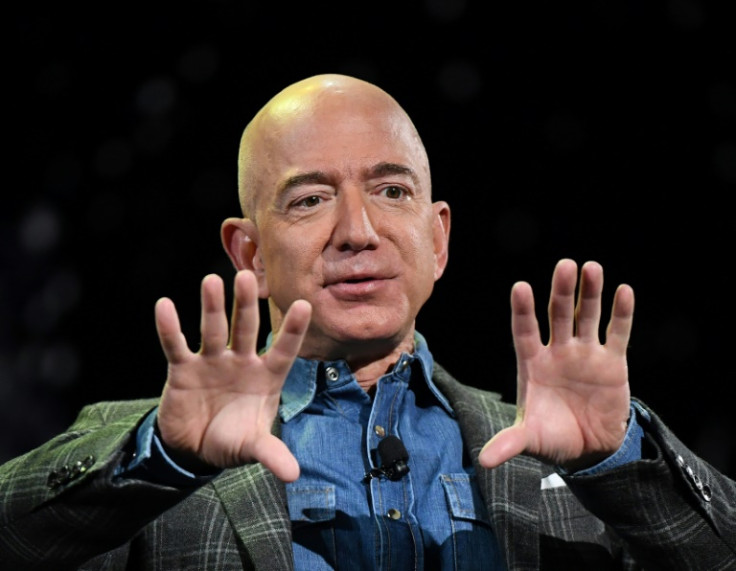Jeff Bezos Blocked Harris Endorsement In 'Quid Pro Quo' With Trump: Washington Post Editor
Editor-at-large Robert Kagan, who resigned in protest, says billionaire owner stopped endorsement same day executives of his Blue Origin space company met with Trump

A top Washington Post editor lashed owner Jeff Bezos for blocking the newspaper's endorsement of Kamala Harris in what he called a "quid pro quo" with Donald Trump in an interview with the Daily Beast.
Outgoing editor-at-large and columnist Robert Kagan, who resigned Friday to protest Bezos' action, said he doesn't know the specifics of a deal. But he said Trump's meeting with executives of Bezos' Blue Origin space company on the same day the billionaire Amazon owner blocked the Harris endorsement was "proof of a backroom deal," the Beast noted.
"Trump waited to make sure that Bezos did what he said he was going to do, and then met with the Blue Origin people," Kagan told the Daily Beast Saturday. "Which tells us that there was an actual deal made, meaning that Bezos communicated, or through his people, communicated directly with Trump, and they set up this quid pro quo."
The Washington Post's endorsement of Hillary Clinton in 2016 is widely believed linked to Bezos losing out on a $10 billion cloud computing defense contract awarded by the Trump administration. Trump also frequently attacked Bezos and Amazon from the White House, accusing them of scamming the U.S. Postal Service.
Kagan called the Post's "self-censorship" just the start of a cowed media if Trump takes the presidency and publishers fear retaliation if they report anything that displeases him.
The Post's failure to endorse a candidate for the first time since 1976 has been bashed by political leaders, First Amendment rights advocates and on social media. Thousands of Americans have reportedly cancelled their Post subscriptions and are boycotting Amazon.
CNN's Brian Stelter attacked the Post's action on Saturday as "authoritarian" appeasement with dire consequences for a free press.
"This is known as anticipatory obedience — the idea that some people obey in advance to curry favor with aspiring authoritarians," he said.
Bob Woodward and Carl Bernstein, the reporting duo who broke the Watergate scandal in the Nixon administration, said the decision flies in the face of the Washington Post's "own overwhelming reportorial evidence on the threat Donald Trump poses to democracy."
Under "Jeff Bezos's ownership" the newspaper has wielded its "abundant resources to rigorously investigate the danger and damage a second Trump presidency could cause to the future of American democracy and that makes this decision even more surprising and disappointing, especially this late in the electoral process," they noted in a statement.
Bezos has not spoken about the decision, which multiple press report said was his, nor has he replied to Kagan's accusations.
Washington Post publisher Will Lewis issued a statement Friday saying: "As publisher, I do not believe in presidential endorsements. We are an independent newspaper and should support our readers ability to make up their own minds." Many, however, have complained that not to endorse Harris is a tacit endorsement of Trump.
Another billionaire newspaper owner, Patrick Soon-Shiong, also stepped in last week to block an expected endorsement of Kamala Harris by the Los Angeles Times. The head of the paper's editorial board, Mariel Garza, resigned in protest.
"I am resigning because I want to make it clear that I am not okay with us being silent," Garza told the Columbia Journalism Review. "In dangerous times, honest people need to stand up. This is how I'm standing up."
👀
— Matt Laslo (@MattLaslo) October 26, 2024
“I am overwhelmed with the number of heartfelt messages from readers cancelling but expressing personal appreciation for what I do. It breaks my heart,” a @washingtonpost editorial writer tells @brianstelter.
Reliable Sources: https://t.co/EPhVQsKZYE pic.twitter.com/WN2hoyq9z3
© Copyright IBTimes 2024. All rights reserved.






















